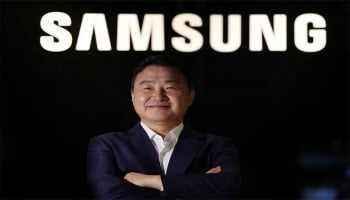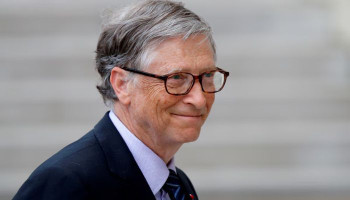
Alibaba’s CEO Eddie Wu has urged the company to keep up with AI or risk being left behind. Wu, who took over as Alibaba’s CEO in September, told employees that the company needs to be more user-centric and AI-driven and invest in technology innovation.
Wu, a longtime confidant of Alibaba founder Jack Ma, became the fourth CEO of the 24-year-old e-commerce giant. He replaced Daniel Zhang, who stepped down from the role to focus on leading the cloud computing business. However, Zhang unexpectedly quit as the cloud CEO this week, and Wu took over as the interim head.
In a letter to employees that was seen by CNBC, Wu said that Alibaba needed to adapt to the changing times and embrace new opportunities. He said that Alibaba’s two main strategic focuses will be “user first” and “AI-driven”, and that the company will “reinforce” its strategic investments in three areas.
One of them is “technology-driven internet platforms”, where Wu said that Alibaba should seek more open and collaborative relationships with other players in the industry, even with competitors. This is a different approach from Alibaba’s previous strategy of trying to keep users within its own ecosystem of products.
Another area is artificial intelligence, which Wu said is the "most significant" change agent in the next decade. He said that Alibaba should transform its use cases into applications for AI technology, and drive breakthrough user experience and business models through technology innovation.
“If we don’t keep up with the changes of the AI era, we will be displaced,” Wu added.
Alibaba’s cloud unit has been trying to position itself as a leader in AI in China, and it launched its own large language model called Tongyi Qianwen earlier this year. A large language model is an AI model trained on huge amounts of data and can power chatbot applications. It is similar to OpenAI’s ChatGPT model.
The announcement of the company’s strategy comes as it undergoes its biggest-ever restructuring.
According to a plan, initially announced by the company in March, Alibaba has been divided into six separate units, such as cloud, e-commerce, logistics, media and entertainment. Each unit will have its own Chief Executive Officer (CEO) and board of directors. Most of these units will be allowed to have the option of pursuing separate listings or fundraising.
China’s economy is slowing down, with consumers holding back on spending. Owing to these factors the business environment has also become tougher for Ali Baba.
In these conditions, E-commerce companies like Alibaba are under pressure to offer more discounted goods to attract or retain customers. The company faces rising competition from major online rivals such as Pinduoduo2 and Bytedance-owned Douyin2, a short video app with a strong live shopping business.
Wu stated that Alibaba achieved massive growth over the last 24 years by “riding the trend of internet technology”. He said that he hopes to lead Alibaba into a new era of growth by adopting a start-up mindset and promoting younger people to senior management.
“Times are changing, and so must Alibaba! As the world progresses, Alibaba needs to evolve even faster!” Wu said in his letter.
















